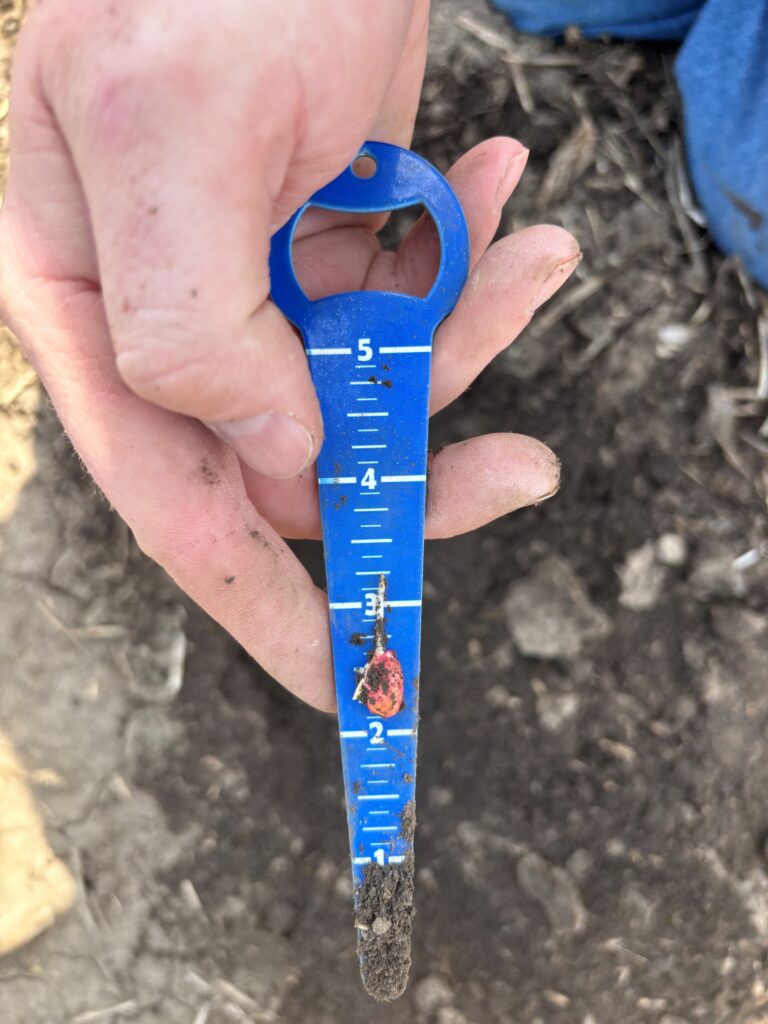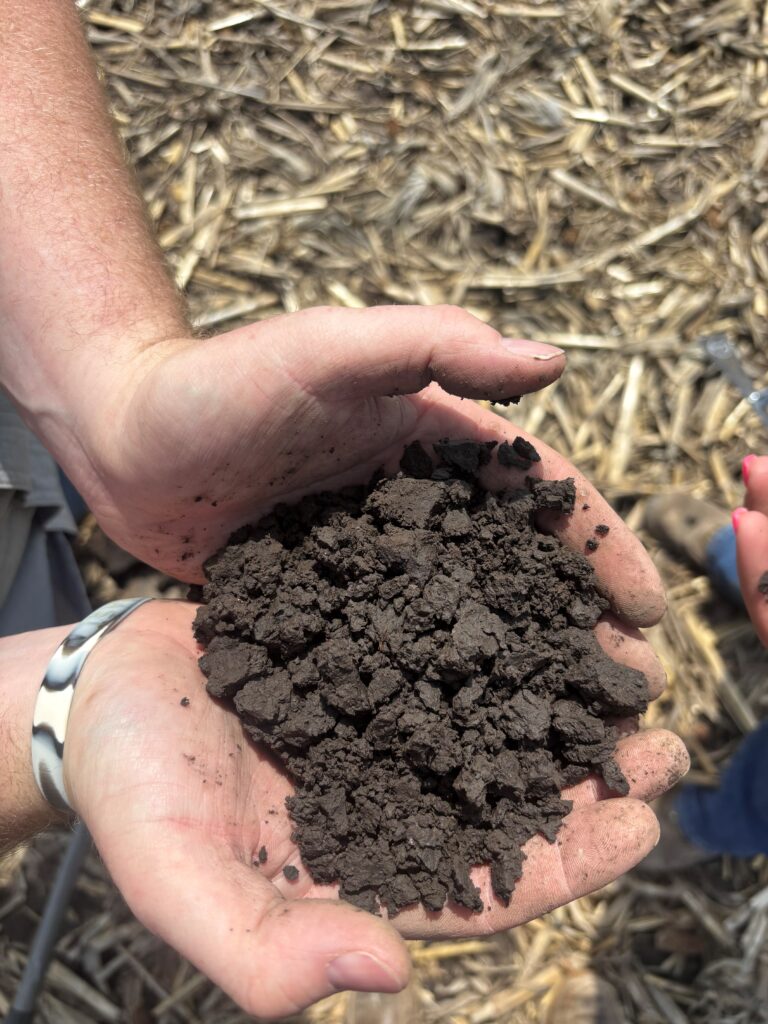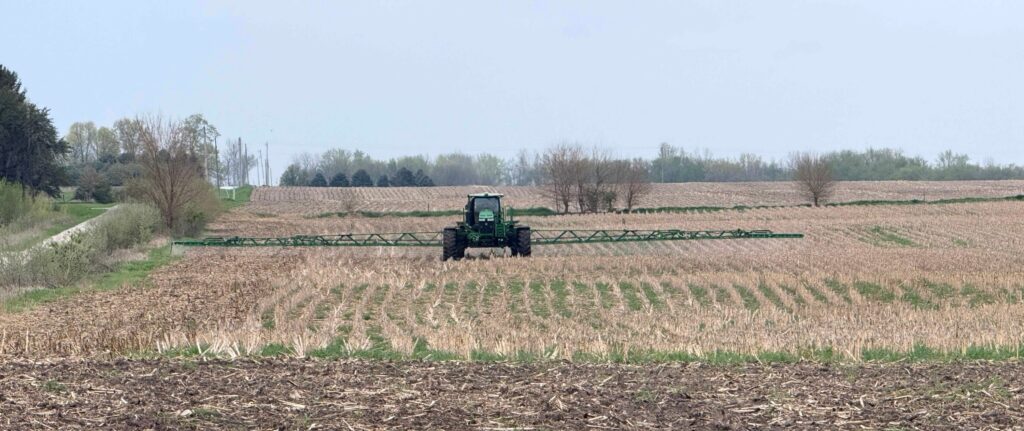Crop Report



After receiving a significant amount of rain (1.5-2.0) over 2-3 days, planting and spraying halted until late week, with sprayers rolling again on Thursday. These wet conditions allowed everyone to catch up on maintenance items, mapping boundaries, and ultimately not feeling guilty about taking some family time Easter Sunday. We anticipate planting to resume Friday into the weekend as conditions become more favorable. There was also learning opportunities to “sharpen the blade” such as Illinois Soybean Association’s Agronomy Team’s Q&A webinar and other industry insight webinars.
The average temperature this week was 70 degrees. Easter Sunday brought heavy storms with multiple tornadoes in our area, leaving farmers and our community with some significant damage.
Knox County received anywhere from 1.5 – 2″ from Friday (4/18) to Today (4/25).
Many spades full of soil were pulled over the past couple of days to determine whether or not the fields were fit to spray. Fields that are fit have no obvious wet spots on the surface and the entire sample that is pulled should be able to crumble under minimal pressure. Meanwhile, soil that isn’t fit will hold a strong ball, smeared under pressure and obviously wet to the touch. Overall, tillage practices, residue cover, weed density and were big factors as to whether or not the field were fit or not. No-till fields were drying quicker than fields that had been tilled due to good soil structure and permeability.
Spring burndown was halted early in the week. However, by Thursday we saw sprayers returning in the fields. After Thursday night’s rain, scouting for field conditions continued as we aimed to find conditions that were favorable to spray.
Knox County didn’t see much of an increase if any in planed acres this week. Around 55% soybean acres have been planted. According to Abigal Peterson, Director of Agronomy at Illinois Soybean Association, around 10% of Illinois soybeans have been planted as of April 24th.
The same applies to corn, with a very small if any increase in acres planted. Around 6% of Knox County corn acres have been planted. Fields that were planted last week have germinated and the coleoptile and the lateral seminal roots are present.
N/A
None present.
Winter annuals, such as henbit continue to be an issue in our area and are holding moisture in the soil as they create a mat. Residual herbicides and pre-emergence chemistries were going strong last week but were halted for the most part this week with the wet conditions. Other weeds, such as giant ragweed and dandelion, are taking off, especially in no-till cornstalks, but they are being burndown as field conditions continue to improve.
None detected.
None detected.
Any cover crops that have yet to be burndown, are greening up and should be burntdown soon. However, most have already been burndown.
Spring pasture spraying was completed yesterday (4/24). Grass is starting to green up, due to the heat and moisture. Many that work in the agronomy field find the grass in their yards getting away from them :). In time between rains this week we were able map field boundaries for growers. These technologies allow producers to utilize precision farming tools and techniques. This increases ease of life for operators when making applications.


 and then
and then